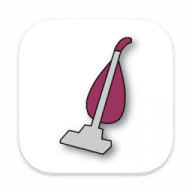SiteSucker is a powerful web scraping and data extraction tool designed to facilitate the process of downloading websites for offline viewing. It’s a valuable resource for various tasks such as research, website archiving, or content backup. In this article, we will delve into the world of SiteSucker, exploring its applications, functionality, and the advantages of utilizing proxy servers from OneProxy in conjunction with this tool.
What is SiteSucker Used for and How Does it Work?
SiteSucker is primarily used for:
-
Website Archiving: SiteSucker enables users to download entire websites, including HTML, images, stylesheets, and other assets. This is particularly useful for creating backups of websites or for offline browsing.
-
Research and Analysis: Researchers and analysts can use SiteSucker to collect data from websites for various purposes, such as studying market trends, monitoring competitors, or conducting academic research.
-
Content Extraction: SiteSucker simplifies the process of extracting specific content from websites. Users can specify which pages or elements to download, making it a versatile tool for content extraction.
The working principle of SiteSucker is straightforward. It operates by mimicking a web browser and downloading web pages and associated assets by following links within the site. This results in a local copy of the website that can be browsed offline.
Why Do You Need a Proxy for SiteSucker?
Using a proxy server in conjunction with SiteSucker offers several advantages and is often a necessity, depending on your specific use case. Here’s why:
-
IP Anonymity: When scraping websites, it’s crucial to maintain anonymity to prevent IP bans or restrictions. A proxy server acts as an intermediary, masking your IP address and ensuring that your scraping activities remain discreet.
-
Geolocation Control: Proxies allow you to choose the location from which you appear to be browsing. This is essential for accessing region-restricted content or websites that might block access from certain countries.
-
Load Distribution: By routing your SiteSucker requests through multiple proxy servers, you can distribute the load and avoid overloading a single IP address, reducing the risk of being detected as a scraper.
-
Enhanced Security: Proxies add an extra layer of security by shielding your device’s IP address from potential threats or malicious actors on the web.
Advantages of Using a Proxy with SiteSucker
Utilizing proxy servers, such as those offered by OneProxy, with SiteSucker offers a range of benefits:
| Advantage | Description |
|---|---|
| 1. Improved Anonymity | Proxies mask your IP address, making it challenging for websites to trace your scraping activity. |
| 2. Geolocation Flexibility | Access geo-restricted content by connecting to proxies in specific locations. |
| 3. High Availability | OneProxy provides a reliable proxy service with minimal downtime, ensuring uninterrupted scraping. |
| 4. Scalability | Easily scale your scraping operations by using multiple proxy servers concurrently. |
| 5. Data Protection | Protect your personal IP address and data while conducting web scraping tasks. |
What are the Cons of Using Free Proxies for SiteSucker?
While free proxies may seem enticing, they come with several drawbacks when used with SiteSucker:
-
Unreliable Performance: Free proxies often suffer from slow speeds and frequent downtime, which can disrupt your scraping activities.
-
Limited Locations: They offer limited geolocation options, restricting your ability to access region-specific content.
-
Security Risks: Free proxies may not provide adequate security, leaving your data and activities vulnerable to threats.
-
IP Blocking: Many websites can easily detect and block traffic from known free proxy IPs.
What Are the Best Proxies for SiteSucker?
When selecting proxies for SiteSucker, it’s advisable to opt for premium proxy services like OneProxy. These paid services offer the following advantages:
| Key Features | Description |
|---|---|
| 1. High-Speed Connections | Premium proxies provide fast and stable connections, ensuring efficient scraping. |
| 2. Diverse Geolocation Options | Access a wide range of locations, giving you flexibility in your web scraping endeavors. |
| 3. Datacenter and Residential Proxies | Choose the type of proxy that suits your needs, whether it’s datacenter or residential proxies. |
| 4. 24/7 Customer Support | Get assistance whenever you need it, ensuring a seamless scraping experience. |
| 5. Compatibility with SiteSucker | Premium proxies are designed to work seamlessly with SiteSucker and similar tools. |
How to Configure a Proxy Server for SiteSucker?
Configuring a proxy server with SiteSucker is a straightforward process:
-
Obtain Proxy Credentials: Sign up with a proxy service like OneProxy and receive your proxy server credentials, including the IP address and port.
-
Launch SiteSucker: Open SiteSucker and go to the “Preferences” or “Settings” section.
-
Proxy Configuration: Locate the proxy configuration settings within SiteSucker. Usually, you’ll find options to input the proxy IP address and port.
-
Authentication (if required): If your proxy service requires authentication, enter your username and password.
-
Save and Apply: Save your proxy settings and apply them within SiteSucker.
By following these steps, you’ll ensure that SiteSucker routes its requests through the proxy server, enhancing your web scraping capabilities while maintaining anonymity.
In conclusion, SiteSucker is a valuable tool for web scraping and data extraction, but using it in conjunction with a reliable proxy server, such as those offered by OneProxy, enhances its functionality and ensures a smoother scraping experience. The advantages of proxies, including improved anonymity, geolocation flexibility, and data protection, make them indispensable tools for professionals and researchers engaged in web scraping activities.













